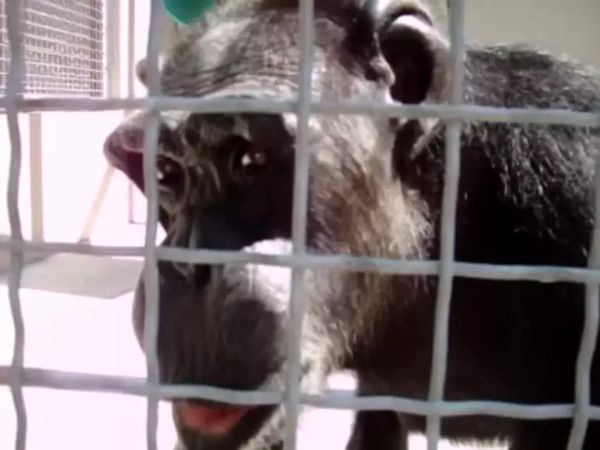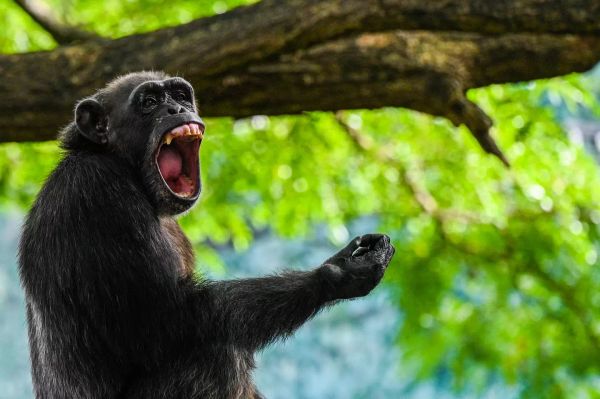Chimpanzees, our close relatives in nature, have long fascinated researchers with their high intelligence and ability to communicate through sign language. But recently resurfaced footage from the 1960s and 2000s has astounded scientists, showing two chimpanzees seemingly producing human speech.

In both videos, the chimps uttered the word ‘mama’ when prompted by their handlers. This remarkable behavior indicates that they not only physically articulated the word but also grasped its meaning. While parrots excel at imitation but lack comprehension, great apes like chimps possess the cognitive capability to understand spoken language.

A research paper analyzing this footage revealed that “chimpanzees possess the neural building blocks necessary for speech” and that they underestimated the vocal production capacities of great apes. Renata, one of the chimpanzees, reliably produced ‘mama,’ suggesting that chimps could potentially learn the “first words” of human spoken languages.
However, other studies with chimpanzees yielded less promising outcomes. For instance, a chimp named Viki was taught English for a year but only managed to utter ‘mama,’ ‘papa,’ ‘up,’ and ‘cup.’ It seems that while speech may appear intuitive, it is closely tied to the physical structure of our bodies.

The muscles and tissues surrounding our palate play a vital role in producing the diverse range of sounds found in human languages. Some languages utilize palate structures differently, incorporating sounds that may not exist in other languages. Arabic, for example, features the letter ‘qaaf,’ a throaty sound, while Portuguese uses ‘ã,’ a nasal resonance. Mastering these complex sounds can be challenging even for non-native human speakers, let alone another species like chimpanzees.
Nevertheless, it is important to note that chimpanzees are capable of advanced communication amongst themselves, exchanging complex information. While the potential for full-fledged human speech in chimpanzees may be limited, their ability to mimic and comprehend certain words offers a fascinating glimpse into the depth of their intelligence.
So next time you interact with a chimpanzee, pay attention to the meaningful sounds they make, as they may be attempting to communicate in a way we are only just beginning to understand.






